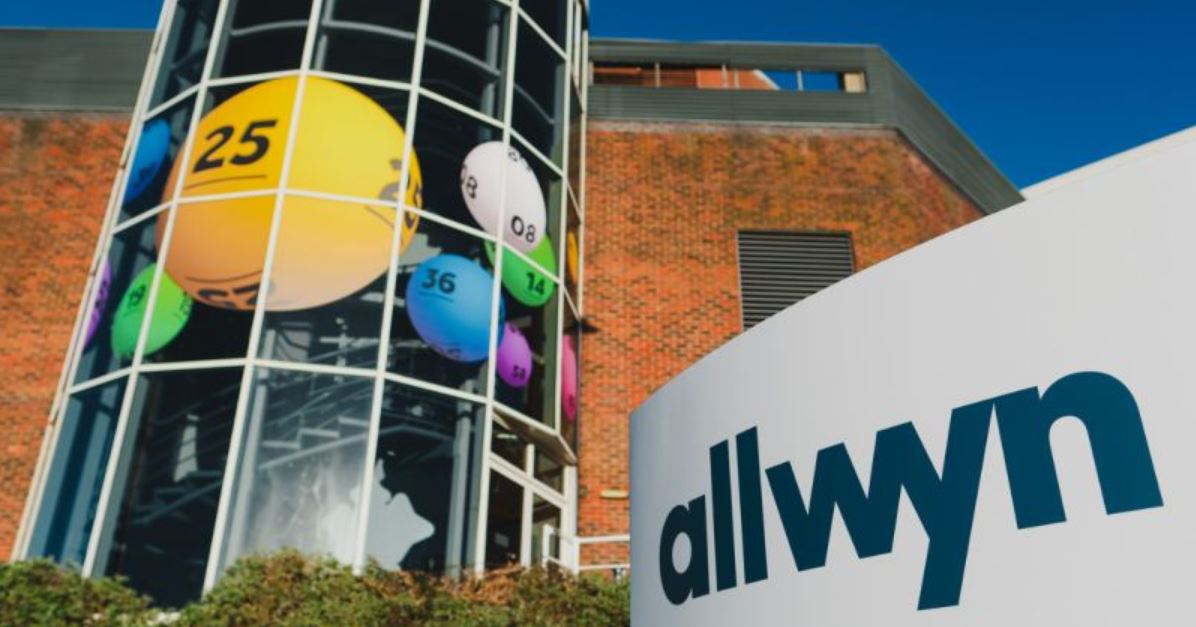
One of the most common criticisms of the gambling industry is the way it targets lower-income people. And the worst culprit, we are always told, is the British bookmaker, writes Jon Bruford.
Every company will target its most numerous customers. I’m not saying whether it’s right or wrong, it just is Is. There are also more low rent licenses in these areas, more kebab shops and more charity shops, as well as fewer Waitrose stores. In a higher income area there are more Waitrose, fewer bookmakers… and that’s how it is.
And yet for some reason the National Lottery never gets into this argument.
It is the epitome of normalizing gambling. The first advertising campaigns were all: “Change your shitty life, win the lottery!” It is still legal to advertise on The Guardian, so you can be sure it will be fully accepted by the middle class and above.
Why do I take part in the lottery? Because the playing field is far from leveled and recent news has led me to believe that it’s not going to level out any time soon.
An exception for the National Lottery
The government recently announced a consultation on a new compulsory gambling levy, which aims to raise additional funding for research, education and treatment (RET) into gambling harms.
Culture Secretary Lucy Frazer said: “We are taking the next step in our plan to protect those most at risk of gambling harm by imposing a new levy on gambling operators to pay for treatment and research.”
“All gambling operators must pay their fair share. This consultation is an opportunity for the industry, clinicians, those who have suffered gambling injuries and the general public to have their say on how the proposed Gambling Operators Levy should work.
“Introducing this levy will strengthen the safety net and help deliver our long-term plan to help build stronger communities while continuing to provide safe gambling for millions of people.”
Of course, what she said and what she meant are not the same. “All gambling operators will be obliged to pay their fair share” except the National Lottery. For unknown reasons, it is neither considered nor treated as a gambling operator, even though it is by far the largest. Sure, distributing money to good causes is great — and it relieves the government of the burden of finding ways to make life less stressful. So everyone wins, right? Well, no.
Because the lottery is not just the raffle of a lottery. Retailers also sell scratch cards, and that’s a completely different matter. The problem with this form of gambling is…Where do I start? Dr. Mark Griffiths, Distinguished Professor of Behavioral Addictions at Nottingham Trent University, wrote in the Electronic Journal of Gambling Issues that scratch cards are a “hard” form of gambling.
This “hard” definition equates them with roulette and blackjack, rather than the casual, harmless game we might be led to believe.
Accessibility of scratch cards
The lottery itself, despite its many side games, is definitely soft gambling – small event frequencies ensure this is the case. Even the spin-off games in the UK adhere to this.
But scratch cards? Their design often emulates slot machines or similar, and their characteristics “have the potential to encourage excessive gambling, regardless of the player’s personality, environment or genetic makeup.” These characteristics include the ability to create psychologically rewarding experiences in financially losing situations do – particularly the psychology of near misses,” says Professor Griffiths.
So what’s the big deal? It’s a combination of this normalization and the number of outlets. There are just over 6,000 bookmakers in the UK. That’s about one bookmaker for every 10,000 people. Yes, I know, they are not divided by population/share. It is just to illustrate the idea.
The National Lottery has over 43,000 branches, and they all Sell scratch cards. Operator Camelot proudly told me that 94% of the UK population lives or works within a mile of a National Lottery terminal.
I attempted to break down their numbers and types by demographic and region, but understandably was unable to do so “because publishing more detailed, commercially sensitive sales data would allow competitors to target specific areas of the UK for their own commercial advantage. “This puts Camelot at a disadvantage in achieving our overall goal of maximizing returns for good causes.”
Or, as I like to say, it would put Camelot at a disadvantage to sell so many tickets.
The primary goal of any gambling operator is profit, and anyone who claims otherwise is bullshit. The good cause aspect is exactly how the lottery operator gets around the punitive guidelines that the rest of us have to follow.
Protection of under 18s
And by not publishing this information you also avoid examining the distribution of branches by region because – and I’m sticking my neck out here – I would bet real money that it reflects the density of retail bookmakers and puts them proportionately in the would cast shadows.
Camelot emphasized to me the work they do to make sure retailers comply with the law, don’t sell to minors, and ask for ID, and that’s pretty impressive.
A spokesperson emailed me to explain: “Whilst the National Lottery games are very different to those offered in the wider gambling sector, it is vital that we and our retail partners continue to do everything we can to prevent that underage and excessive gambling is taking place.”
“For example, in 2022 to 2023, we conducted over 11,600 retailer visits as part of ‘Operation 18’, which uses people over 18 but who look younger to prevent retailers from accidentally infringing on a test visit violate the law. If a retailer fails a mystery shopping visit three times, their National Lottery terminal will be blocked and likely removed.
“And I’m pleased to report that a record 92% of National Lottery retailers correctly asked for ID on their first visits during the 2022-23 Operation 18 mystery shopper program – a testament to their ongoing commitment for the responsible sale of National Lottery games. The best-ever results are particularly impressive when you consider that the minimum age to enter the National Lottery has only changed from 16 to 18 in 2021.”
Possible bad habit
The spokesperson continued: “As part of our commitment to healthy gaming, we also run a number of other training initiatives. For example, in 2022-23, our retail team made over 160,000 contacts with National Lottery retailers – through phone calls, face-to-face visits and emails – to provide advice on preventing underage gambling and how best to support healthy in-store gambling.
“Elsewhere, our Healthy Gambling mystery shopping initiative included over 4,000 additional store visits and helped educate retailers about the signs of potentially unhealthy gambling among their customers.”
To be fair to them, this goes further than most other gambling operators when you add in the visits from their retail team to advise them on supporting healthy gaming in store and everything that goes with it. And the operator also said it is training retailers to recognize “unhealthy” behavior.
But as Professor Griffiths says: “It is not difficult to see how playing scratch cards can become a repetitive habit, given the integrated combination of conditioning effects, rapid event frequency, short payout intervals and psychological rewards, and the fact that scratch cards do not require skill and are deceptive.” inexpensive, easily accessible and sold in “reputable” stores.”
This puts the sentence “National lottery games are very different from those offered in the wider gambling sector” into a better and more realistic context. It seems that they are not all that different.
The spokesman concluded: “Due to the strict safeguards we have put in place, it is widely and independently recognized that the inherent risk of gambling problems associated with National Lottery games is very low.” Here I have to argue: If you take all games condensed into one type, I suspect that the problematic gameplay aspect of the main game would bring the numbers down significantly.
Include the National Lottery in the RET levy
But I don’t think anyone has looked into scratch cards specifically, and given the nature of retail and players, I don’t think they have any Ability to monitor dangerous behavior with this game type.
What probably shocked me the most, however, is that I and the Betting and Gaming Council are in complete agreement on this. After announcing the RET consultation, they said: “We believe in it [the levy] should apply to all operators, including the National Lottery, without affecting good causes which are not immune to problem gamblers using their products such as scratch cards and instant win games.”
Imagine how much the huge network of branches and taxes do for all types of games more Could it make sense to include the National Lottery in the RET levy?
As I always say, if it’s a problem, treat it like it’s a problem. Don’t be picky just because you like something.
Jon Bruford has worked in the gaming industry for over 17 years, formerly as Managing Editor of Casino International and currently as Publishing Director at The Gaming Boardroom, alongside Kate Chambers and Greg Saint. He owns a large dog with a sensitive stomach and spends his free time learning about stain removal.







